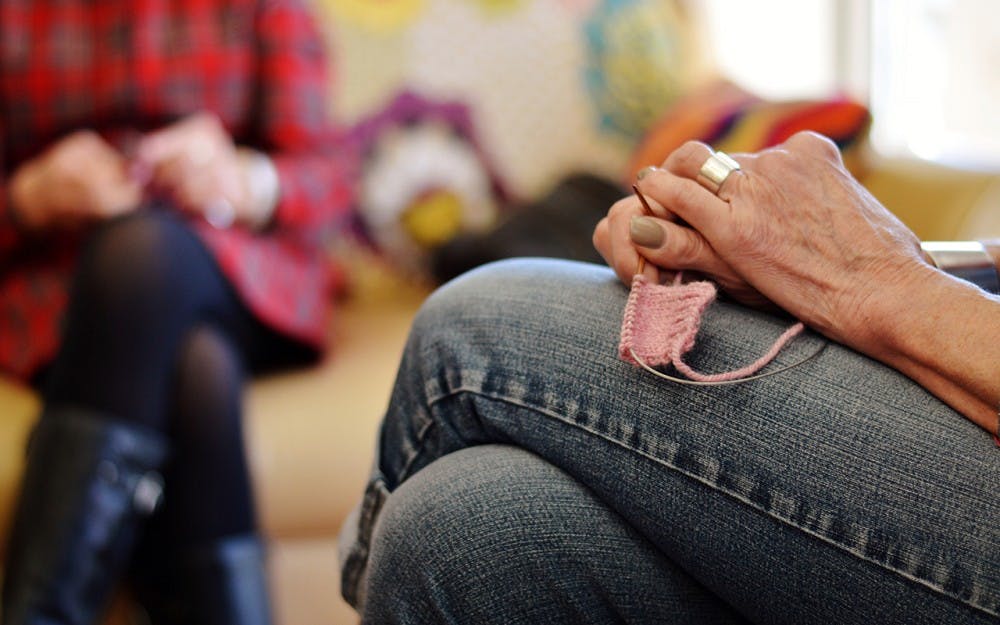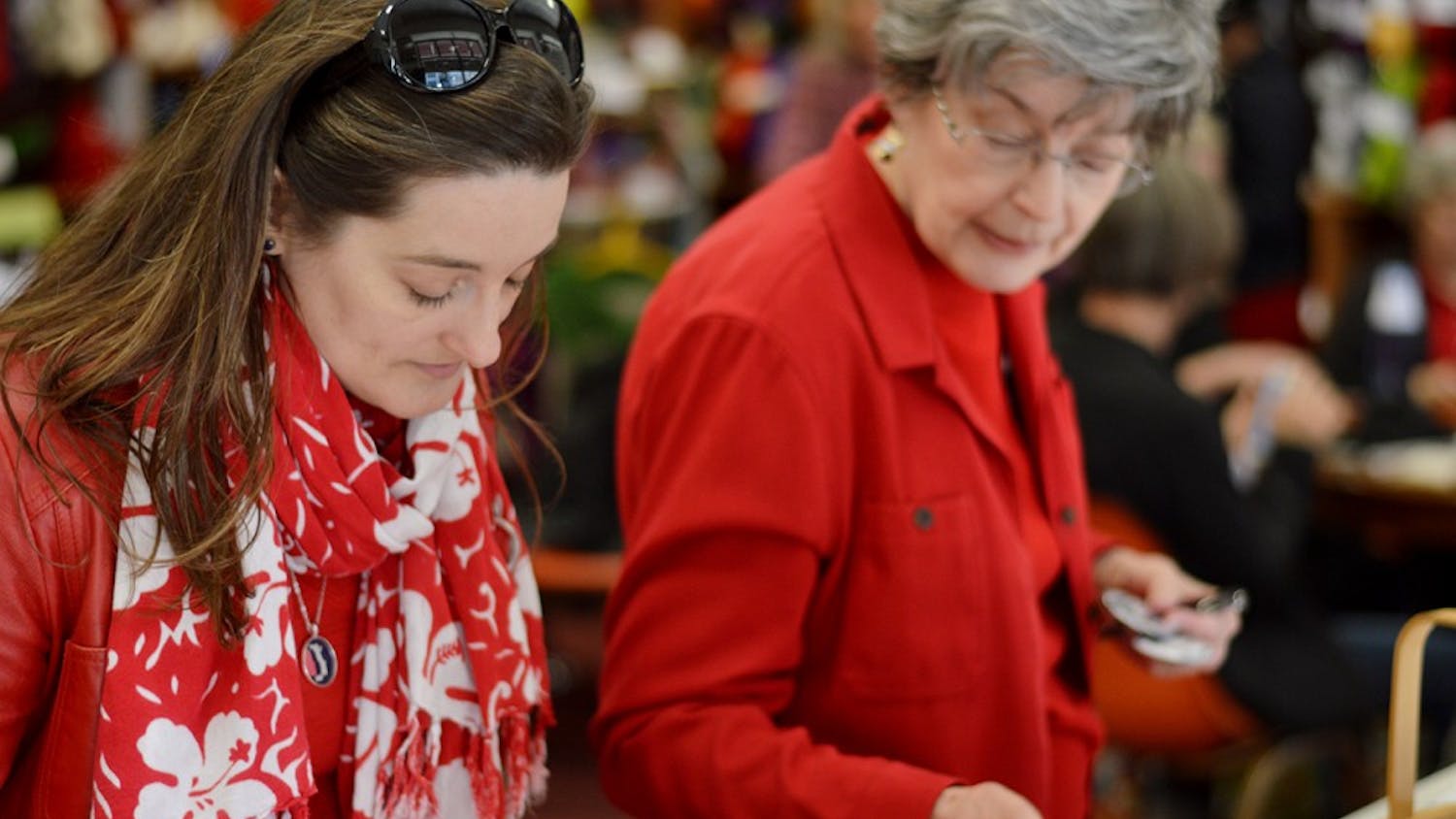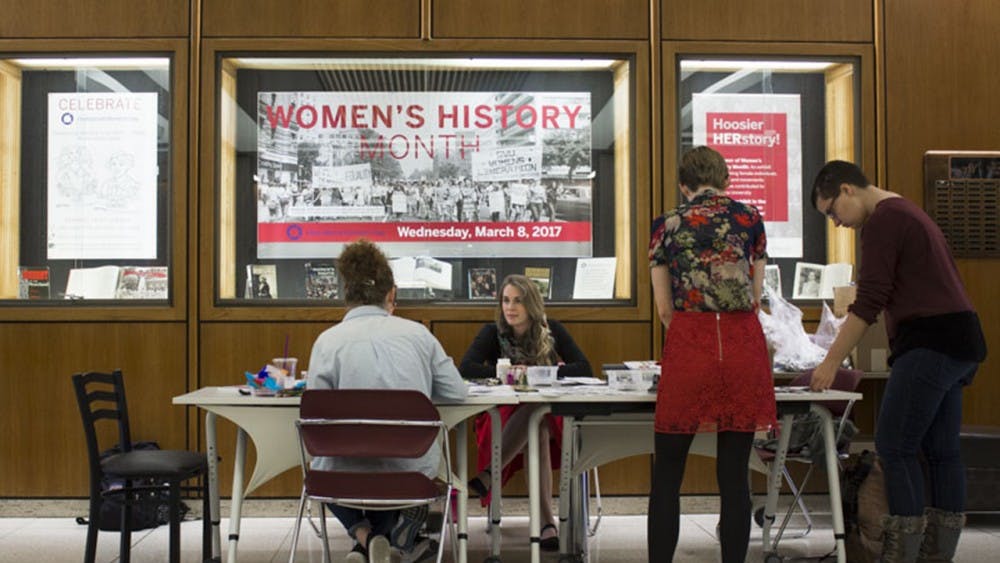They were supposed to be absent.
Wednesday was A Day Without A Woman, a protest organized by leaders of the Women’s March on Washington. Women were encouraged to abstain from work — paid or unpaid — of any kind and to spend money at women- and minority-owned businesses if they spent any money at all. Through their absence, the organizers hoped to draw attention to the socio-economic roles women fill in society despite inequalities and discrimination in the workforce.
However, some women felt their role in the workforce was too important to leave even if it was only for a day.
Christine Popp runs Popp Law Office , a four-woman immigration law firm on College Avenue. All four women worked Wednesday. Popp said she was late discovering A Day Without A Woman, but her decision to work would not have changed regardless.
“I support the people who decided to take the day off,” Popp said. “For us, we are doing better work by being here.”
Popp said the hardships her clients would face if she was absent did not justify her taking the day off.
“My clients work,” Popp said. “They have to take the day off. If they are mothers, they may have to arrange childcare. I try not to cancel because it’s not easy to come here.”
Some of her clients are already concerned with their status in the current political environment, she said. Among them are women who have experienced domestic violence or other incidents that make them a more vulnerable community.
“Many are incredibly frightened about what is going on and applying for legal status is important,” Popp said.
Although none of her staff took the day off, Popp said she would have supported them if they had wanted to do so.
Templeton Elementary teacher Erika Peek also said she felt her absence at work might affect her students negatively.Instead of missing work, Peek wore a red shirt and a pink Pussyhat to school.
“It’s important for me to show a work ethic to my students and also to be a role model for the girls in my class,” Peek said.
IU chemistry professor Sara Skrabalak said she had considered participating in the day-long strike but realized she was scheduled to speak at Pittcon, a laboratory science conference and exposition already.
“I was very conflicted on what to do,” Skrabalak said.
She debated with her friends and they came to a conclusion: her presence at the conference would have more influence than her absence.
“One fewer woman at the conference won’t really make a difference,” Skrabalak said. “Most people agreed that if I cancelled on the talk, it would largely go unnoticed.”
To combat this, Skrabalak decided to wear red as she delivered her lecture and included a closing slide in her presentation detailing the discrepancy between women and minority representation in science-related fields.
“I am hoping that it will force the audience to take a moment to think about representation within the scenes and within the broader workforce,” Skrabalak said. “The strike is meant to highlight just how much work women do. I hope that people will take a moment to really acknowledge that.”
Skrabalak said wearing red and giving her lecture were more minor points of activism.
“I routinely write and call my representatives and senators on a variety of issues,” Skrabalak said. “That’s a really important way to ensure our voices are being heard.”
For these women, the day was about choice: The option to participate was something they could actively choose or reject, but for some women there was no choice. Those who act as care-givers are unable to quit giving care for a day unless someone else steps in to fill that role. Many low-income workers are unable to take days off. They may not accrue paid time off or cannot afford to lose a day’s wages.
At a local Walmart, some female employees were not aware of A Day Without Women. One suggested that if any women had taken the day off, it would have required requesting paid time off well in advance.
According to the Center for American Progress Action Fund, if every working woman participated on Wednesday, the United States’ economy would have lost $21 billion dollars.
Amira Sabbagh visited Yarns Unlimited Wednesday. She doesn't consider herself a feminist, but supports equality. https://t.co/EOe3awWmHU pic.twitter.com/LcPVAG4YME
— IndianaDailyStudent (@idsnews) March 9, 2017






